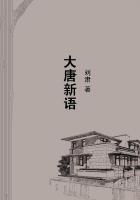Protestants would make the functions of the ruler and the priest forever distinct. But at that time the popes themselves were secular rulers, as well as spiritual dignitaries. All bishops and abbots had the charge of political interests. Courts of law were presided over by priests. Priests were ambassadors to foreign powers; they were ministers of kings; they had the control of innumerable secular affairs, now intrusted to laymen. So their interference with politics did not shock the people of Florence, or the opinions of the age. It was indeed imperatively called for, since the clergy were the most learned and influential men of those times, even in affairs of state. I doubt if the Catholic Church has ever abrogated or ignored her old right to meddle in the politics of a state or nation. I do not know, nor do I believe, that the Catholic clergy in this our country take it upon themselves to instruct the people in their political duties. No enlightened Protestant congregation would endure such interference.
No Protestant minister dares ever to discuss direct political issues from the pulpit, except perhaps on Thanksgiving Day, or in some rare exigency in public morality. Still less would he venture to tell his parishioners how they should vote in town-meetings. In imitation of ancient saints and apostles, he is wisely constrained from interference in secular and political affairs. But in the Middle Ages, and the Catholic Church, the priest could be political in his preaching, since many of his duties were secular.
Savonarola usurped no prerogatives. He refrained from meeting men in secular vocations. Even in his politics he confined himself to his sphere in the pulpit. He did not attend the public debates; he simply preached. He ruled by wisdom, eloquence, and sanctity; and as he was an oracle, his utterances became a law.
But while he instructed the people in political duties, he paid far more attention to public morals. He would break up luxury, extravagance, ostentatious living, unseemly dresses in the house of God. He was the foe of all levities, all frivolities, all insidious pleasures. Bad men found no favor in his eyes, and he exposed their hypocrisies and crimes. He denounced sin, in high places and low. He did not confine himself to the sins of his own people alone, but censured those of princes and of other cities.
He embraced all Italy in his glance. He invoked the Lord to take the Church out of the hands of the Devil, to pour out his wrath on guilty cities. He throws down a gauntlet of defiance to all corrupt potentates; he predicts the near approach of calamities; he foretells the certainty of divine judgment upon all sin; he clothes himself with the thunders of the Jewish prophets; he seems to invoke woe, desolation, and destruction. He ascribes the very invasion of the French to the justice of retribution. "Thy crimes, O Florence! thy crimes, O Rome! thy crimes, O Italy! are the causes of these chastisements." And so terrible are his denunciations that the whole city quakes with fear. Mirandola relates that as Savonarola's voice sounded like a clap of thunder in the cathedral, packed to its utmost capacity with the trembling people, a cold shiver ran through all his bones and the hairs of his head stood on end. "O Rome!" exclaimed the preacher, "thou shalt be put to the sword, since thou wilt not be converted. O Italy! confusion upon confusion shall overtake thee; the confusion of war shall follow thy sins, and famine and pestilence shall follow after war." Then he denounces Rome: "O harlot Church! thou hast made thy deformity apparent to all the world; thou hast multiplied thy fornications in Italy, in France, in Spain, in every country. Behold, saith the Lord, I will stretch forth my hand upon thee; I will deliver thee into the hands of those that hate thee." The burden of his soul is sin,--sin everywhere, even in the bosom of the Church,--and the necessity of repentance, of turning to the Lord. He is more than an Elijah,--he is a John the Baptist. His sermons are chiefly drawn from the Old Testament, especially from the prophets in their denunciation of woes; like them, he is stern, awful, sublime. He does not attack the polity or the constitution of the Church, but its corruptions. He does not call the Pope a usurper, a fraud, an impostor; he does not attack the office; but if the Pope is a bad man he denounces his crimes. He is still the Dominican monk, owning his allegiance, but demanding the reformation of the head of the Church, to whom God has given the keys of Saint Peter. Neither does he meddle with the doctrines of the Church; he does not take much interest in dogmas. He is not a theologian, but he would change the habits and manners of the people of Florence. He would urge throughout Italy a reformation of morals. He sees only the degeneracy in life; he threatens eternal penalties if sin be persisted in. He alarms the fears of the people, so that women part with their ornaments, dress with more simplicity, and walk more demurely; licentious young men become modest and devout;instead of the songs of the carnival, religious hymns are sung;tradesmen forsake their shops for the churches; alms are more freely given; great scholars become monks; even children bring their offerings to the Church; a pyramid of "vanities" is burned on the public square.
And no wonder. A man had appeared at a great crisis in wickedness, and yet while the people were still susceptible of grand sentiments; and this man--venerated, austere, impassioned, like an ancient prophet, like one risen from the dead--denounces woes with such awful tones, such majestic fervor, such terrible emphasis, as to break through all apathy, all delusions, and fill the people with remorse, astonish them by his revelations, and make them really feel that the supernal powers, armed with the terrors of Omnipotence, would hurl them into hell unless they repented.













